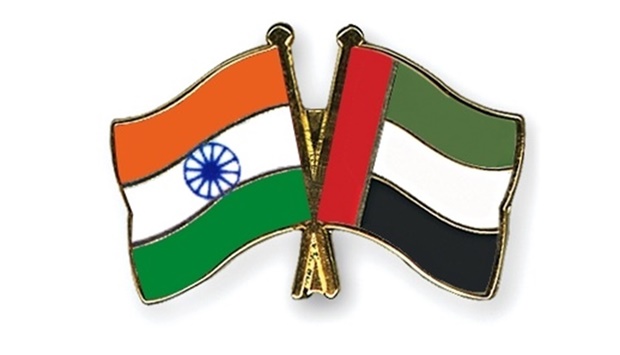India and the United Arab Emirates signed a broad trade and investment pact yesterday that will eventually cut all tariffs on each other’s goods and aims to increase annual trade between the two nations to $100bn within five years.
The virtual signing ceremony marks the first trade deal sealed by the Gulf nation it began pursuing such pacts last September in a bid to strengthen its status as a business hub.
India’s Prime Minister Narendra Modi and Abu Dhabi Crown Prince Mohamed bin Zayed al-Nahyan witnessed the signing by senior officials from both nations, already major trade partners, during a virtual summit between the leaders.
The Comprehensive Economic Partnership Agreement (CEPA), as it is known, is expected to boost annual bilateral non-oil trade from $60bn to $100bn within the next three to five years, India’s prime minister’s office said.
“There will be a huge flow of trade and investments between both nations and it’s going to open the door for more business opportunities,” UAE Minister State for Foreign Trade Thani al-Zeyoudi told Reuters.
The agreement, which was not immediately made public, eliminates 80% of tariffs on UAE and India goods, while all tariffs are to be removed within 10 years, al-Zeyoudi said.
UAE commodities like aluminium, copper and petrochemicals would benefit from the removal of tariffs, he said.
The deal also covers services, investments, intellectual property, and a commitment by the UAE to grant 140,000 employment visas to highly skilled workers from India by 2030.
India is the second largest trading partner of the UAE, where each year billions of dollars in remittances are sent home by more than 3mn Indians working in the Gulf nation.
The UAE economy ministry said by 2030 the CEPA would add $9bn, or 1.7%, to UAE gross domestic product, exports would increase $7.6bn, or 1.5%, and imports would rise $14.8bn, or 3.8%.
The CEPA is expected to take 1.5-2 years to be implemented.
The UAE is pursuing similar trade and investment deals with nations including Turkey and South Korea, and expects to soon finalise bilateral negotiations with Israel and Indonesia.
It has also announced a raft of regulatory and social reforms in recent years to make business and life easier in the country where most of the 10mn population are foreigners.
“We’re moving from a regional to a global hub,” al-Zeyoudi said, referring to the trade deals and policy announcements.

Flag pin India_UAE, India-UAE flags pin
